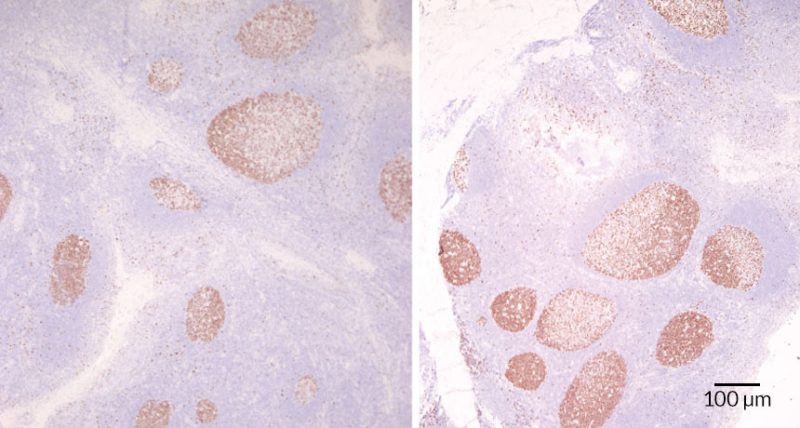What’s behind frequent strep throat? Consult the tonsils
Immune problems may be one source — stowaway germs may give faulty diagnoses

The germs that cause strep throat infections can hide out in the tonsils.
vitapix/iStock/Getty Images Plus
For kids, getting strep throat over and over is a pain. It’s also a problem that has puzzled scientists. Now a study of kids’ tonsils suggests what’s up. Some kids have a faulty immune response to strep bacteria. Others are misdiagnosed with the disease when strep germs hide out in their tonsils.
That’s the finding of a study published online February 6 in Science Translational Medicine.
Each year, strep throat sickens some 600 million people across the globe. Bacteria called group-A Streptococcus are to blame. The sickness can cause a sore throat, fever and more. Kids who get the disease are at risk of heart problems and rheumatic fever (a non-infectious but very serious disease).
Doctors treat strep throat with antibiotics. Still, some treated kids keep getting strep throat again and again. These children and teens tend to have smaller immune structures in their tonsils than kids who hadn’t had repeated infections, a new study finds. Those immune structures help make antibodies — proteins that fight off bacteria and viruses.
Tonsils may be key
Shane Crotty studies the immune system at the La Jolla Institute for Immunology. It’s in Southern California. For a new study, he and his colleagues examined tonsils from kids 5- to 18-years old. Some had their tonsils taken out because of frequent strep throat. Others had theirs removed to fix breathing problems caused by big tonsils. This second group was a stand-in for kids who don’t get recurring strep throat.
The team looked at pieces of the tonsils under a microscope. Kids with recurring strep had smaller immune structures called germinal (GER-mih-nul) centers. And these centers made fewer immune cells known as T cells. T cells help other immune cells known as B cells make antibodies.

Infection-fighting antibodies come in many forms. Kids with recurring strep had fewer of these that respond to a protein in group A strep. That protein helps the microbe mess with the immune system. That protein may leave kids more prone to future infections, Crotty says.
The research is elegant and intriguing, says Stanford Shulman. He is a doctor that studies infectious disease in kids. Shulman works at the Ann & Robert H. Lurie’s Children’s Hospital of Chicago in Illinois. He was not involved in the research.
But sometimes, Shulman warns, kids diagnosed with recurrent strep throat aren’t sick. Because of some earlier infection, strep bacteria now live harmlessly in their tonsils. In such cases, a sore throat due to a virus might now be mistaken as strep throat. The reason? Tests can turn up signs that the body hosts the strep germ. An estimated 20 percent of school-aged kids are such chronic hosts of group A strep.
It’s possible some kids in the study’s recurrent strep-throat group were carriers, too, Shulman says. Future work, Shulman says, should determine which kids truly get repeat strep throat infections and which kids are strep carriers who might have been sickened this time by something else.







